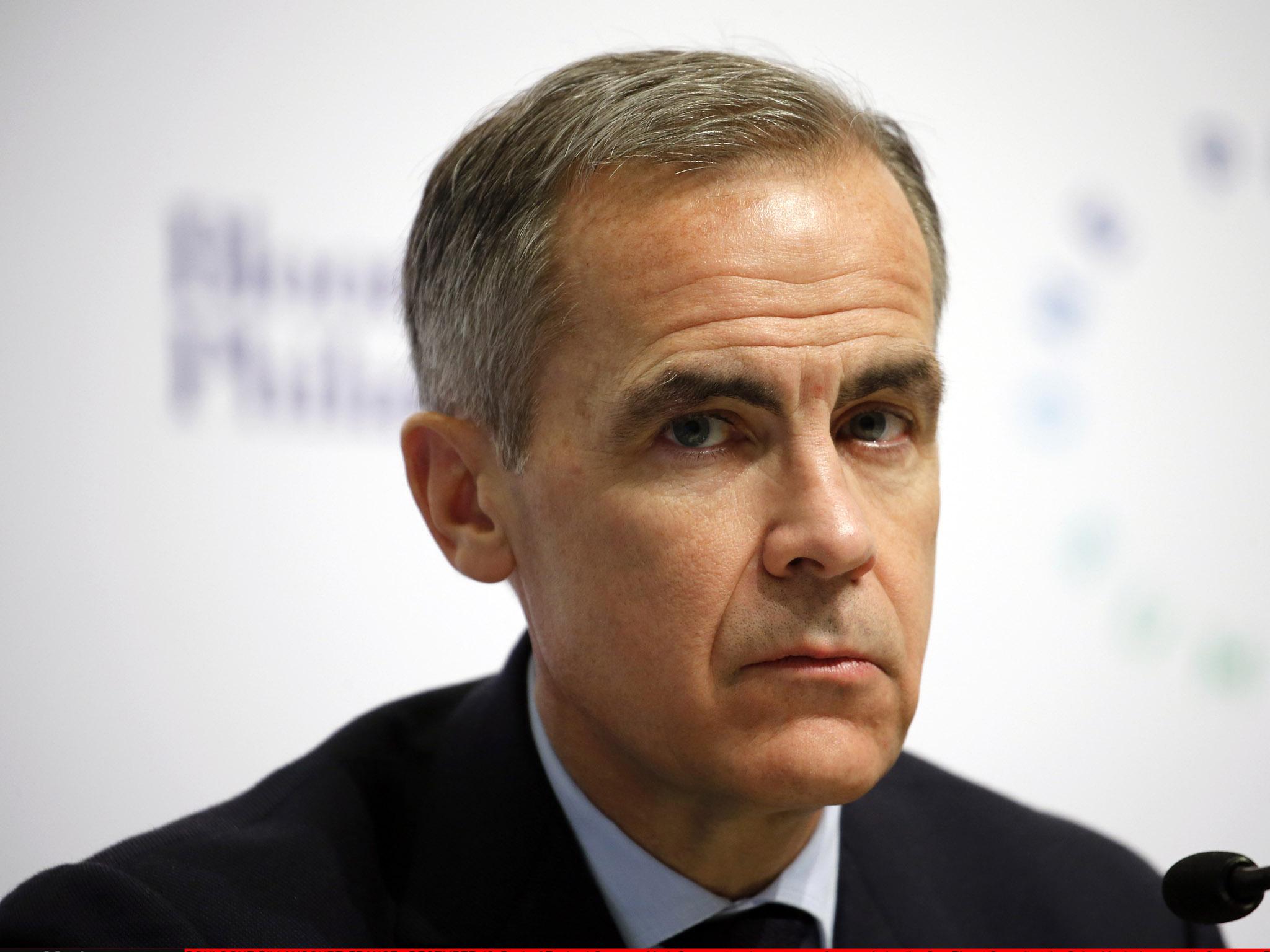Mark Carney warns robots taking jobs could lead to rise of Marxism
Mass unemployment, wage stagnation and growth of communism could come from technological advances

Your support helps us to tell the story
From reproductive rights to climate change to Big Tech, The Independent is on the ground when the story is developing. Whether it's investigating the financials of Elon Musk's pro-Trump PAC or producing our latest documentary, 'The A Word', which shines a light on the American women fighting for reproductive rights, we know how important it is to parse out the facts from the messaging.
At such a critical moment in US history, we need reporters on the ground. Your donation allows us to keep sending journalists to speak to both sides of the story.
The Independent is trusted by Americans across the entire political spectrum. And unlike many other quality news outlets, we choose not to lock Americans out of our reporting and analysis with paywalls. We believe quality journalism should be available to everyone, paid for by those who can afford it.
Your support makes all the difference.Mass job losses caused by advancing technology could lead to a rise of Marxism, the governor of the Bank of England has warned.
Mark Carney said the automation of millions of jobs could lead to mass unemployment, wage stagnation and the growth of communism within a generation.
He warned “Marx and Engels may again become relevant.”
Speaking at the Canada Growth Summit, Mr Carney said increases in artificial intelligence, big data and high-tech machines could create huge inequalities between the high-skilled workers who benefit from the advances and those who are sidelined by them.
He said: “The benefits, from a worker’s perspective, from the first industrial revolution, which began in the latter half of the 18th century, were not felt fully in productivity and wages until the latter half of the 19th century.
“If you substitute platforms for textile mills, machine learning for steam engines, Twitter for the telegraph, you have exactly the same dynamics as existed 150 years ago – when Karl Marx was scribbling the Communist Manifesto.”
The industrial revolution saw a then-unparalleled growth in production during the late 18th and early 19th centuries – but wages failed to increase for decades as machines meant the jobs created were low-skilled.
Many believe the resulting inequalities were a direct precursor to the rise of both left- and right-wing extremism across Europe.
Mr Carney, who is due to leave his post in 2019, said the years of weak salary growth since the financial crisis suggested this 19th-century experience was already being repeated.
The governor also added there were signs of “hollowing out” in the job market as mid-level workers find computers able to complete specific tasks – even some previously considered skilled work.
He said: “There is a disconnect in expectations. In surveys, over 90 per cent of citizens don’t think their jobs will be affected by automation, but a similar percentage of CEOs think the opposite, in the number of jobs which will be materially affected.”
He pointed out how law firms were already using artificial intelligence to comb through documents and read evidence, something traditionally done by junior lawyers. And he added that banks have used a combination of artificial intelligence and big data to computerise large swathes of customer service departments, resulting in staff being made unemployed.
Jobs such as a taxi or lorry drivers could also be scrapped, as self-driving technology improves, he added.
Mr Carney said the trends go against previous ideas which suggested only manual tasks would be given to machines.
The end result, he indicated, might mean more workers need to prepare for jobs which require a higher emotional intelligence, in sectors such as care and leisure.
Join our commenting forum
Join thought-provoking conversations, follow other Independent readers and see their replies
Comments